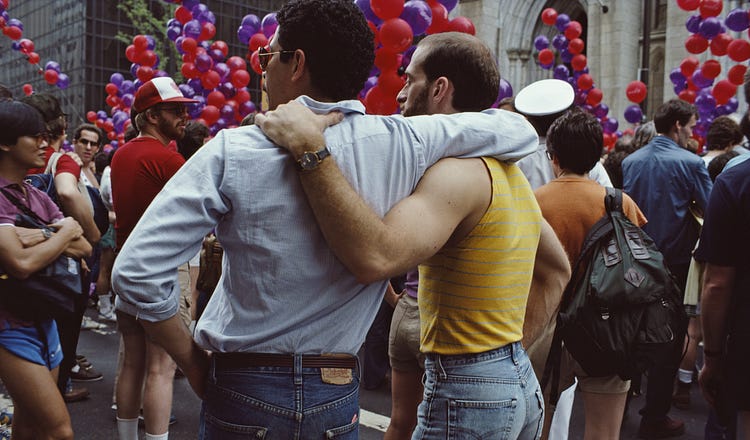'The First Amendment Created Gay America'

Two men watching the Gay Pride parade in New York City, USA, June 1984. (Barbara Alper via Getty Images)
The radicals who dominate today’s gender-identity movement forget why we’ve come so far.
459
Jamie Kirchick was a byline before he was a friend. I read him back when I used to religiously read The New Republic, and, naturally, I assumed he was old and wizened. When I found out he was a year older than me and getting scoops like this, I was what I think of as good jealous: I wanted to know how he did what he did so I could figure out how to do i…
Continue Reading The Free Press
To support our journalism, and unlock all of our investigative stories and provocative commentary about the world as it actually is, subscribe below.
$8.33/month
Billed as $100 yearly
$10/month
Billed as $10 monthly
Already have an account?
Sign In

